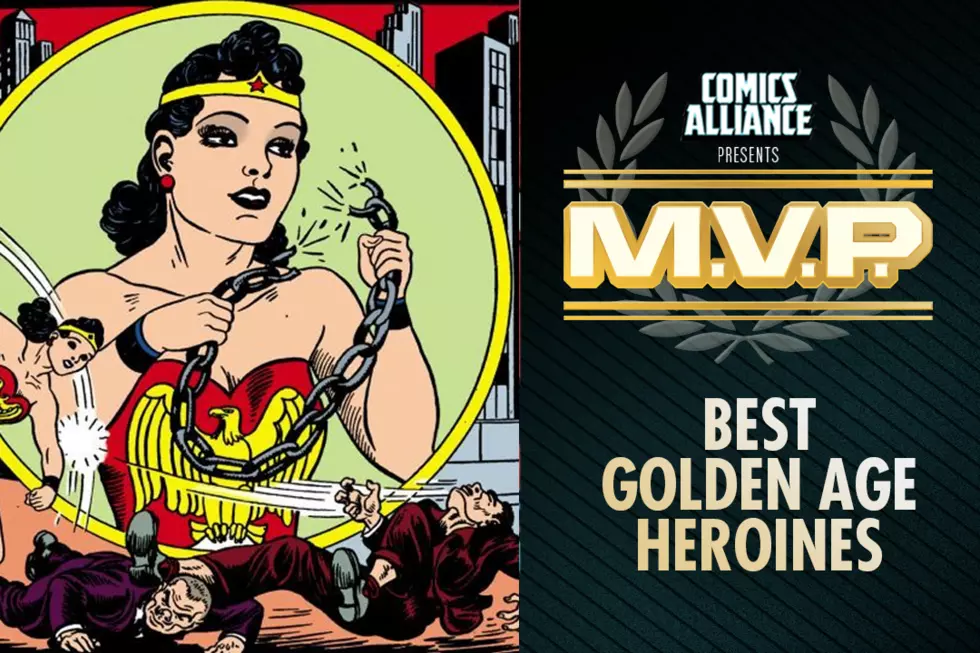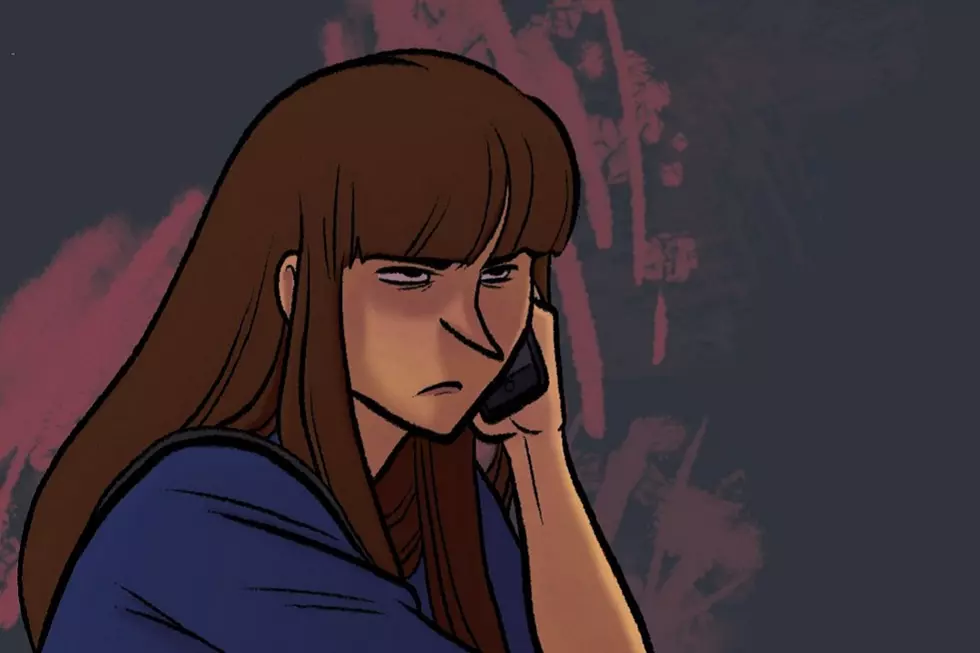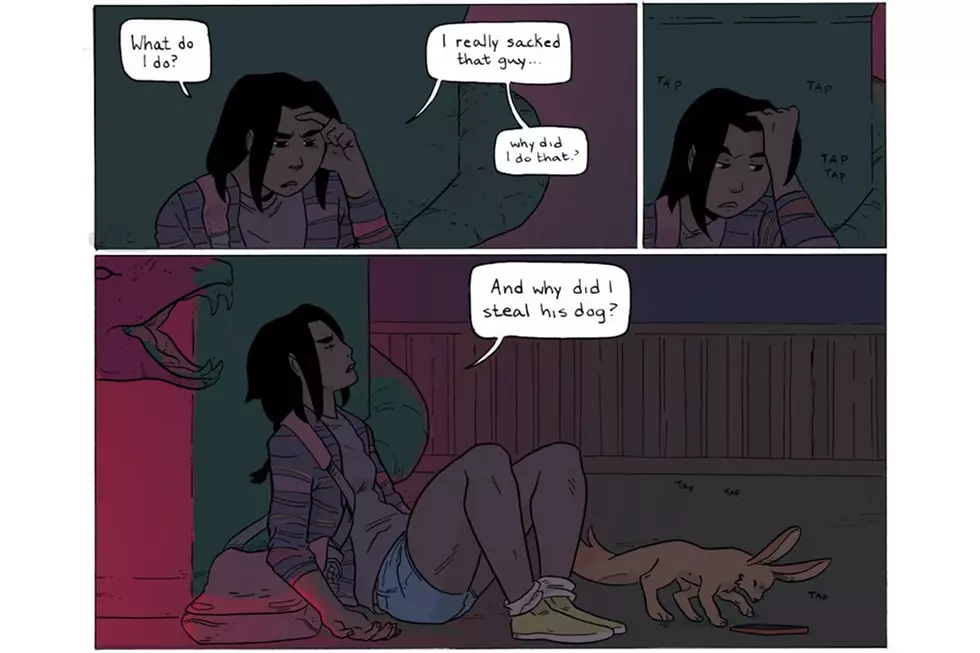
Denver ComicCon Added Last Minute Women In Comics Panel
Earlier this week, we told you about the Women in Comics panel at Denver ComicCon that had no women on the panel. As the convention concluded, more information about that panel came to light, and it's emerged that guests of the convention rallied to put on a more relevant Women in Comics panel. A group of creators and experts, including Trina Robbins, Crystal Skillman, Marguerite Bennett, Joelle Jones, and Amanda Conner, led what was apparently a thoughtful roundtable discussion about women in comics.
First, here's a description of the original Women in Comics panel from Christy Black, who first tweeted about the panel:
The panel was basically Kevin Robinette (I'm pretty sure that was the main, old, white guy as they didn't even introduce themselves) lecturing via slide show about the first women to appear in comics. It pretty much came across as let me tell you what I know, and he didn't really know much. The other two panelist looked embarrassed by the whole thing and tried to interject two or three times. Kevin just barreled over them with his agenda of getting through all of his slides. It was a lot of "this woman appeared here and had this many issues..." He did mention Trina Robbin's work with Miss Fury and that she was at the con.
There were a couple of really offensive statements like "boys don't want to read about girls and girls get bored easily with comics." Of course they brought up Wonder Woman and bondage and using her lasso to get the truth out of men.They had 60 seconds at the end for questions. At this point more than half of the people had already left. I stood up and asked why there weren't any women in the panel. Kevin's response was that it was a last minute addition to the schedule and that he didn't know any. The other two guys said, you're right there should be women on this panel. I told them that frankly, it was offensive to not have women as part of a panel about Women in Comics. Kevin said "well, the panel was successful, it got you here." I told them that no, it didn't. I was raised in comics and liked comics well before this panel.
Some lady in her 50s told me to get over myself as she exited past me.
Later that day I met Trina Robbins and that panel came up. She was appalled that it happened and threw her hands up in the air saying, "hello! I'm right here!" And calling their excuses bullsh--.
Thankfully, out of all of this came a much better panel that was put together on the fly and held on Monday, May 25th. This particular Women in Comics panel was entirely hosted by women and was a roundtable, rather than an historical lecture. The panel information reads:
Some of DCC's many female comic creator guests come together in a roundtable discussion about their careers, their passion for comics and their places in the industry. Come support DCC's Diversity Mission with this guest-led discussion. With Trina Robbins, Crystal Skillman, Joelle Jones, Amanda Conner, Marguerite Bennett.
This last-minute panel was apparently a casual but positive addition to the DCC experience. It was moderated and put together by Crystal Skillman. We asked panelist Marguerite Bennett to give us a breakdown of what the panel was like and what her takeaways from it were. She said:
We had Joelle Jones, Amanda Conner, Trina, Meghan Hetrick, Hannah Means-Shannon, and a young woman from a podcast whose name I'm afraid I can't recall. A good mix of experiences. Playwright Crystal Skillman, who moderated, came around to all of us through the day at the con and invited us to participate--it was all last minute, but I think a lovely idea. (I do want to note I had no idea there had been a previous panel; I said yes simply because it sounded like a fun time.)
The roundtable was, intentionally (and I hope successfully), very informal and largely conversational--we even started with everyone scattered through the auditorium coming up and sitting close to the front. Half of us never even used our mics--really lovely to get to chat instead of promote. We had an interesting mix of expertise and experiences--we had artists and writers from both indie and superhero publications, podcasts and print journalism, critics as well as a historian, with careers spanning from decades to less than two years. We shared stories, took questions, agreed and disagreed. At an attendee's invocation of Kelly Sue's admonition to move beyond "Women in Comics 101," we jumped in the deep end--shared frustrations, stories of accomplishment as well as disappointment, and listened to those of the readers.
I frequently get asked what the "endgame" of women in comics is--a little as though we are an invading army set on a capital city, of a single and destructive mind. The roundtable made me smile, remembering that question. We came from differing backgrounds and had differing opinions and ambitions ahead. "What do women in comics want?" As if we all want the same thing, as if we are all the same person. "What do women in comics want?" My takeaway from the panel was that every woman wants to choose her own path. Every woman wants to make her own way.
Guests at a convention are often exhausted and busy, and the fact that a group of them took the time to put together a panel like this that seemed to have such a positive impact is really admirable. I know many women who dislike the generic "women in comics" panels, as they feel they exacerbate women's "other" status in the comics industry. I generally prefer to not be on them wherever possible, because they often end up very much in the "Women in Comics 101" arena, rather than delving beyond that. Part of that is a moderation issue, and part of it is just the generalized nature of that kind of panel. But there is a value in women being visible in comics and at conventions and talking about our many and varied experiences.
Hopefully, other conventions have been paying attention to this situation at DCC, and will learn something from it. If you're going to have a "Women in Comics" panel, you should definitely have at least some women on it. You should also only allow men on it who have met an actual woman in comics, if you feel you must include a man on that kind of panel at all.
Above all, any "Women in Comics" panel should not be about women as a homogeneous group, but rather about the variety of experiences and interests women in comics have as increasing numbers of women make and read comics.
More From ComicsAlliance
![When Everything Is Pink, Nothing Is Pink: Sarah Stern On Color And Creativity [Interview]](http://townsquare.media/site/622/files/2017/03/Cindersong-feat.jpg?w=980&q=75)








